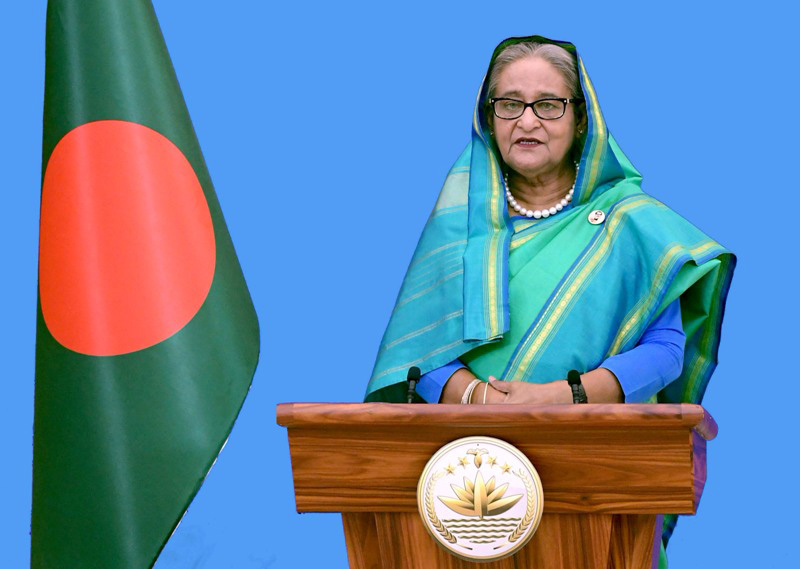 Sheikh Hasina
Sheikh Hasina Global actions needed to tackle liquidity crisis, debt burden: PM Sheikh Hasina
Dhaka: Ambitious and concentrated action plans are needed to address the problems of liquidity crisis and sovereign debt burdens now and in the post-Covid-19 era, Bangladesh Prime Minister Sheikh Hasina said in a virtual program on the International Debt Architecture and Liquidity.
Canadian Prime Minister Justin Trudeau, Jamaican Prime Minister Andrew Holness, and UN Secretary-General Antonio Guterres convened the meeting of world leaders to urge the international community to take additional and urgent action to ensure a robust economic recovery.
“Strong leadership is needed from the G7, G20, and OECD (Organisation for Economic Co-operation and Development) countries,” Hasina was quoted as saying by the Daily Star.
Stressing on suitable reforms in the international debt architecture, she said, “Developed countries, MDBs (multilateral development banks) and IFIs (international financial institutions) should scale up liquidity for vulnerable countries, such as large and new ‘Special Drawing Rights’ allocation.”
Advocating the cause of least developed countries, she said a new international support structure is required for these countries at least until 2030.
The Covid-19 crisis, started last year, dropped the global GDP by 4.3 percent, pushed 255 million people worldwide out of jobs, and increased extreme poverty for the first time since 1998.
Support Our Journalism
We cannot do without you.. your contribution supports unbiased journalism
IBNS is not driven by any ism- not wokeism, not racism, not skewed secularism, not hyper right-wing or left liberal ideals, nor by any hardline religious beliefs or hyper nationalism. We want to serve you good old objective news, as they are. We do not judge or preach. We let people decide for themselves. We only try to present factual and well-sourced news.







